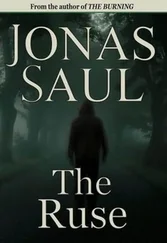‘Are you really asking me that?’
Karl looked away for a moment and gazed out across the open-plan office. He put his hands on his hips and clenched his jaw. Then he looked at me again.
‘Yes, I’m really asking you that,’ he said.
‘I think you maximise your potential better if you imagine a customer at the other end.’
I could tell he was impressed even if he was unable to grasp the full extent of the idea and absorb it there and then. I pointed at the screen again.
‘So I’d be grateful if you could take the time to fill in this customer questionnaire, which you’ll find by clicking this link. The survey contains five questions dealing with the quality of our services, and one question asking if you think any other service should be provided. The questions are divided according to the various entities within the Department. Home number. Mobile number. Private mobile number, if applicable, although of course that’s voluntary, but I’d be grateful if you could fill in the questionnaire as fully as possible.’
I fell silent and looked at the others. They were all looking at me now. Håkan was wearing the blue corduroy jacket. It looked streaked somehow. Stained? Karl had a terribly deep wrinkle above his nose, right between his eyes.
‘But Björn,’ he said, ‘I asked you to compile a list of phone numbers, didn’t I?’
All my energy slowly drained away. I suddenly had difficulty concentrating. I felt a chill run down my spine and a stiffness spread across my neck and shoulders. Karl disappeared off towards his glass office. Slowly but surely the others went back to work. Finally even Håkan turned away, his scruffy corduroy jacket reflecting his movements like an extra layer of skin.
If it’s never happened to you before, it’s easy to let yourself be taken in by new acquaintances. You get the impression that they’re better than your old ones. You ascribe to them all manner of noble qualities, simply because you don’t know them properly.
They might be nice and pleasant the first time, and the second and third. In rare instances also the fourth and fifth. But you will almost always end up disappointed.
Sooner or later you reach a certain point. An occasion when their true self breaks through.
One way of dealing with that sort of thing is simply to assume the worst of people.
Karl, for instance, probably imagines that he means well. He convinces himself that his feeble efforts to help his staff are for the good of all. What he doesn’t recognise, or chooses not to recognise, is his own desire to be seen as a hero: the one who solves the problem and garners the plaudits.
Or Margareta in reception. The appealing exterior, the pleasant demeanour, but before you can say the word ‘unblemished’ she reveals herself to be a junkie.
More people ought to learn to see their worst sides. Everyone has a bad side. As the poem goes: ‘What is base in you is also base in them.’
On the other hand, it’s good to realise that we aren’t as remarkable as we might imagine. We want to earn a lot, eat well and generally have a nice time. Listen to the radio sometimes or watch something on television. Read a book or a journal. We want to have good weather and be able to buy cheap food close to home.
In these terms we are all relatively simple creatures. We dream of finding a more or less pleasant partner, a summer cottage or a time-share on the Costa del Sol. Deep down we just want peace and quiet. A decent dose of easily digested entertainment every now and then.
Anything more is just vain posturing.
After three days without the room I started to feel unsettled deep down in my gut. I became irritable and noticed I was sweating more than usual. The most acute abstinence anxiety was starting to subside but it was as if the habit was still in my body. I constantly had to stop myself when I realised my body was on its way there of its own accord. Like a former smoker fumbling for a packet of cigarettes. I tried to think about something else, and every time I felt the urge I tried counting to twenty.
I didn’t go in. I’m sure of that. I sat there clinging to my desk, thinking that as long as I sat there I was fine.
That night I stood at the window fantasising about the room. Remembering details. The mirror, the filing cabinet. The little fan on the desk. I tried to recreate something of the atmosphere in there. But it just felt odd.
The next morning I woke up thinking about the room. I ate my two crispbreads with unsmoked caviar thinking about the room. I walked to work thinking about the room. I was thinking about the room as I passed Margareta in reception, who hadn’t looked at me for several weeks now and thus hadn’t given me an appropriate opportunity to show that I was keeping my distance. I went up in the lift, got out, and was almost at the door. Very close. I crept towards the forbidden place like a child on Christmas morning. Stopped right next to it. Just stood there, feeling what it felt like to be so close. A bit further down were the three toilets. And beyond them the large recycling bin. There was some writing on it: Not for cardboard or packaging.
Then I caught sight of Ann at the other end of the corridor. I don’t know how she got there but suddenly there she was. Our eyes met and I realised what she was thinking. I shook my head slowly, thinking, No, it’s not what you think.
‘He was there again,’ she said a short while later when we were both standing in Karl’s office.
‘I wasn’t,’ I said.
‘I saw you.’
‘No.’
‘I saw you. You were standing like that again.’
‘No. I was just standing.’
‘That’s what I’m saying.’
‘Surely people are allowed to stand still? No one can stop you just standing for a moment?’
‘You were standing on that spot again,’ Ann said. ‘You were talking to yourself.’
‘I was reading. I didn’t go inside.’
‘What were you reading?’
‘ Not for cardboard or packaging .’
‘Sorry?’ Karl said.
‘I didn’t go inside,’ I said.
Karl tried to calm us both down by putting a hand on each of our shoulders. Ann pulled away. She went and stood by the large window facing the office, with her back to us.
‘I think it’s very unsettling. How’s anyone supposed to know if he’s there or not? This way we can never be sure.’

Word spread from Ann like a group email. During the day practically everyone had passed her desk, and before they walked on they managed to glance in my direction several times. I could see them whispering and pulling faces.
Some of them talked and pointed at me without any attempt to disguise the fact. A few didn’t care if I heard them discussing and diagnosing me. No one replied when I tried to say anything. No one spoke to me at all, apart from Jörgen, who pressed me up against the wall without any warning that afternoon. He held me fairly hard with both hands on my shoulders. His face contorted, his mouth hissing, ‘You’re a freak, you know that?’
I went home slightly early that day because I was unsure of Jörgen’s mental state and I was afraid of physical violence. I once got punched in the stomach at primary school, which made me sick and I had to go and see the nurse. The memory brought with it a series of unpleasant associations.
I packed my things in my briefcase and passed reception and Margareta who pretended not to see me again. On the way home I felt I was being watched by a whole load of people. I thought everyone was looking at me. I had to stand at the front of the aisle in the bus because all the seats were taken, so anyone who felt like it could stare at me as much as they wanted. A small child with a dummy in its mouth stared me right in the eyes for ages. In the end I couldn’t help saying: ‘Do we know each other?’
Читать дальше













